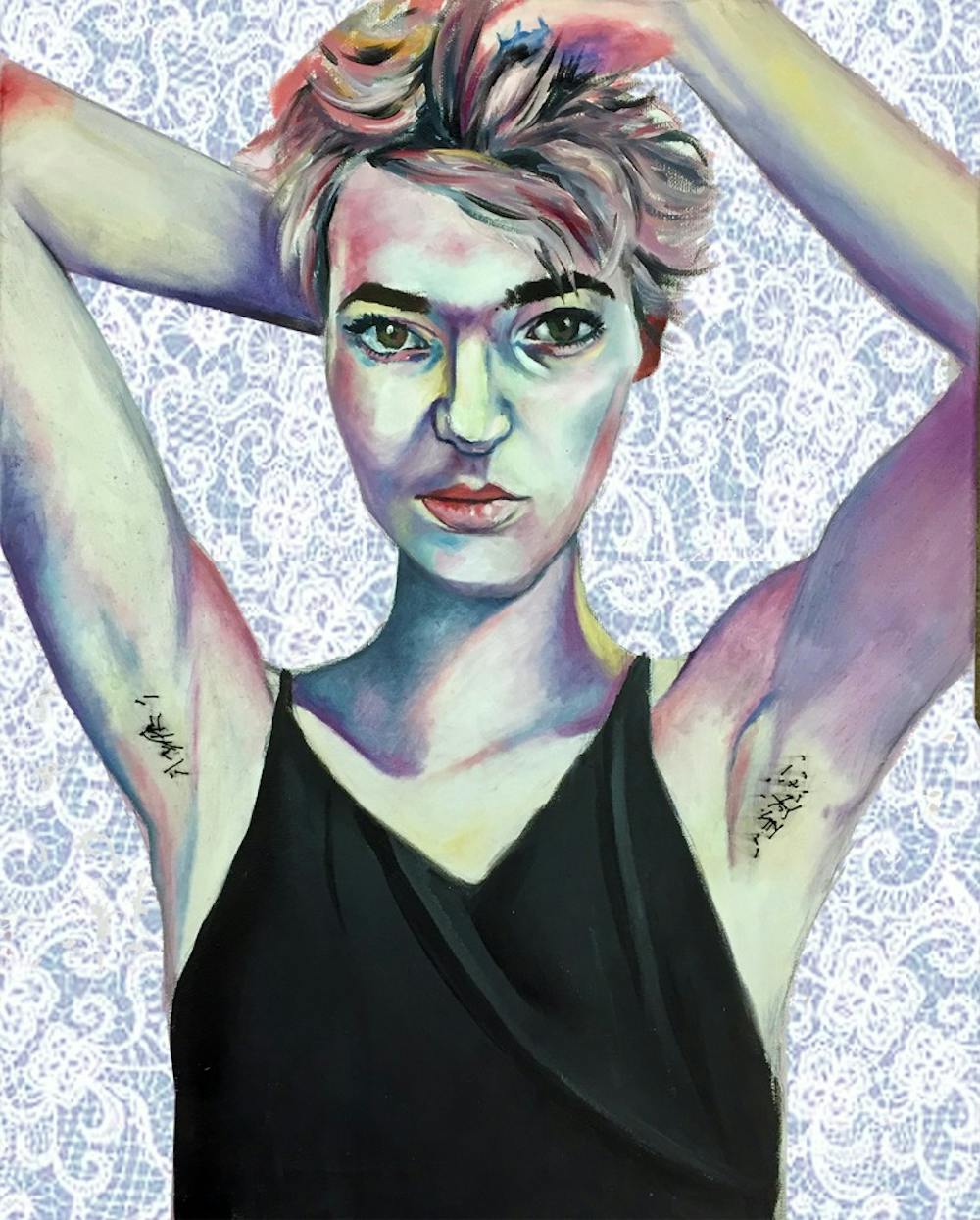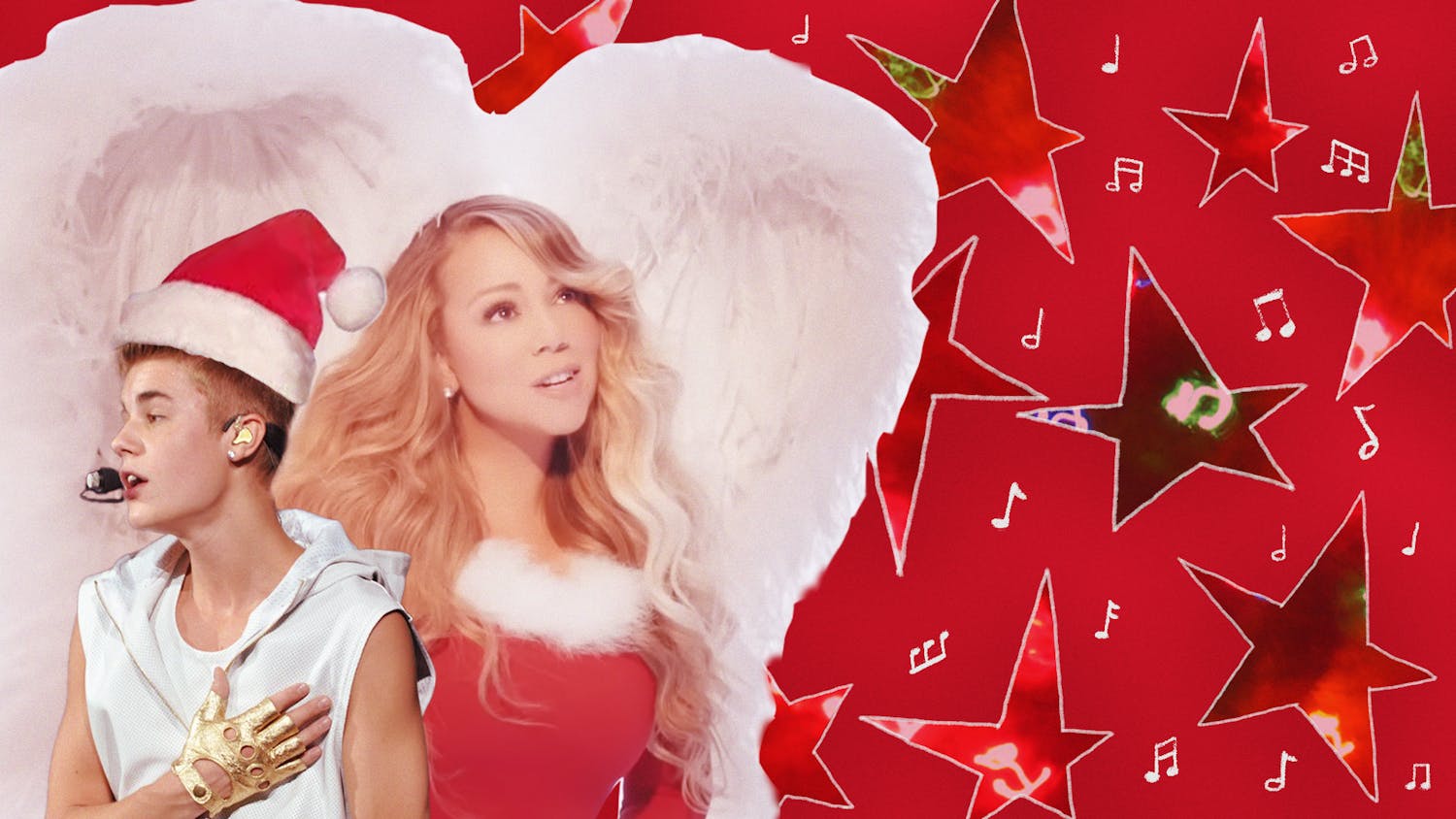This essay is an honorable mention submission from Street's Love Issue personal narrative contest. Read some of our other favorite pieces here and look out for new pieces as we publish them throughout the week!
I loved her name, but I couldn’t ever pronounce it right. I can’t tell you her real name. Mentioning it once would destroy any deniability, and closeted queerness, of course, is all about deniability. So let’s call her Daisy. The moment I met her, she impressed me. Her ability to constantly succeed was the beginning of a phenomenon that I would be possessed by for years: I simultaneously wanted to be her and be with her. My obsession with her, then, was borderline masturbatory; because I saw what I wanted to be in her, I wanted to be in her—in her thoughts, in her heart, in her body.
Our friendship was not founded in flirtation, but over time, it became rooted in it. Openly wary of queerness, Daisy responded to my flirtation with annoyance. I claimed it was all a joke, an ongoing mockery of the socially conservative beliefs she had inherited from her parents. In reality, almost every one of our one–on–one conversations would eventually drift to the topic of sexuality. I would later admit this was no accident, but rather, an act of subconscious maneuvering; much later in my life, I would realize that she, too, was steering the wheel, captaining the conversation just as much as I was. While our interactions at school remained strictly platonic, at night, through text, our relationship was radically evolving. She began matching and exceeding my flirtation, and by the end of sophomore year, she would detail what she would do to my body, if, you know, she was gay. Which, of course, she wasn’t; which, of course, we weren’t.
Our flirtation, as blatant and constant as it might have been, was tied together with our own reassurances that we didn’t deviate from the sexuality our parents and our church expected of us. Our character development, while immense, still existed in the context of ever–present promise of “no homo.” While I was good at separating our virtual relationship from our real–life one, she was better. If I slipped in the slightest hint of affection, she would dismiss it immediately, an instantaneous reminder of what our relationship could and could not be. It pained me, but I thought having her in this way was better than never having her at all. I thought it’d go on like that for forever.
One morning, before school, I found her hunched up on the floor, with her hands pressed against her temples. She had described her migraines to me before, but I had never seen her have one, had never seen her face twisted up in agony. That day, I did. Under that yellowish lighting, on that otherwise quiet morning, I realized I loved her—as if I hadn’t known it all along.
“Don’t look at me like that.”
I never asked her what she meant. Don’t look at me like that, she was saying. Don’t look at me like you love me. You’re not allowed to. Soon after, I completely cut her out of my life. When I couldn’t reassure myself that the messages to Daisy were a joke anymore, I couldn’t send them. I did everything I could not to see her. Our junior year began, and I was cast as the lead in our school play. As fate would have it, Daisy was assigned to stage–manage my side of the stage. We couldn’t resist falling back into our old routines. The text messaging started up again; this time, we began a game of daily truth or dare that lasted months. While I had come to terms with my queerness, coming out very quietly to close friends, she held fast to her assurances that she was straight. Somewhat out, I started hinting at my feelings for her in public, and she let me. Our friends never took it seriously, but rather, considered it an ongoing game within our friend group.
The summer after our senior year, we spent a glorious week together, biking and swimming and soaking up heaven. One night, we rode our beach bikes back to the house together, her bike parallel to mine. I remember us under the streetlights so clearly—her dirty blonde hair soaked with salt water, my right flip–flop half–broken. She turned to me, face flickering in and out of darkness, and asked me with a great calmness how I knew I liked girls. “The biggest giveaway is when I had a dream about one,” I said, failing to mention that she was the girl in question. “I woke up in an absolute panic. I didn’t want to dream about girls like that—I didn’t want to have feelings about girls like that. So I suppressed it and blamed it on eating too much sugary cereal the night before.
“No, you didn’t, did you?”
“I did.” She laughed the spectacular laugh that made me love her in the first place. “You should tell me more stories like that,” she said, her voice warm. She always gave me enough to keep going, enough to keep hoping. And that’s all I had. No one ever believed that Daisy was the slightest bit interested in me (or women, for that matter). When she eventually confirmed it herself, it felt as if gravity had inverted on itself.
Over the winter break of our first year of college, we reunited to eat overpriced pancakes and swap college war stories. At a lull in the conversation, she lifted her glass and paused, as if she had forgotten to mention a passing thought. She nearly brought the water to her lips, before she sighed, “You know, it’s a shame you start dating someone good right when I realize I’m not straight.” I dropped my fork. I forget what I sputtered. We continued on with our breakfast as if nothing had been said, describing our classes and our dorm rooms as if three years of mind games and questioning and self–doubt had not just come to a finite conclusion. When we finished, I walked her to her car. As I sat beside her, I thought how, in a different alternate universe, this is when I would have kissed her. My thoughts were interrupted by my dad’s car horn. He waved enthusiastically at Daisy, and she waved back. He loved her—how could he not? I thought about how enthusiastically he’d endorse me dating Daisy, if, you know, she was a man. There were too many ifs, too many hypotheticals. We said our goodbyes, and I loaded into my father’s car. He immediately asked me if anything was new with Daisy. I shot back a blunt and crisp no. He didn’t seem to believe me, but he didn’t press onward. If he did, I might have confessed. To this day, I never have.
She fell in love that semester. I fell out of love the next. I don’t let myself think of what could have been, if we had the chance to admit what we really felt so many years ago.







